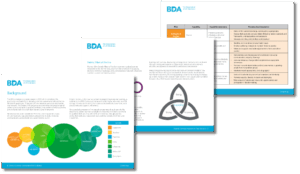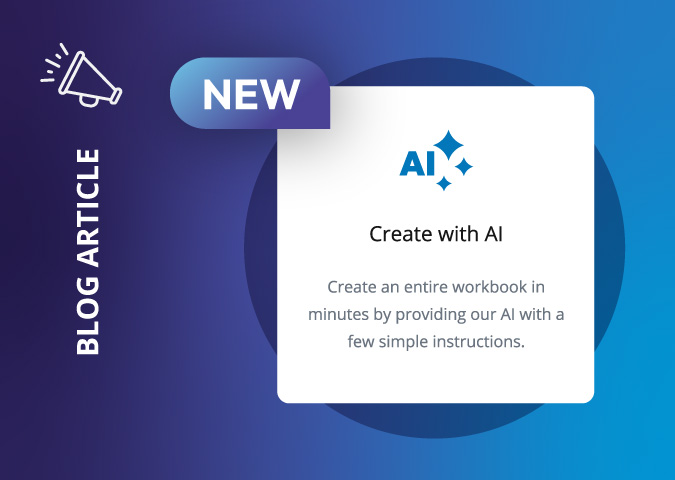Discover how the new digital workbook makes it easier to apply the BDA’s innovative Common Assessment Tool, supporting consistent, competency-based assessment for dietetic learners.
We’ve partnered with leading voices in dietetic education to co-create a new digital workbook aligned with the British Dietetic Association’s (BDA) Common Assessment Tool (CAT). Built in PebblePad, the workbook is designed to support consistent, competency-based assessment for dietetic learners across the UK.
Created with the needs of both Higher Education Institutions and NHS Trusts in mind, the workbook brings together the content and structure of the BDA’s CAT with the flexibility and usability of PebblePad. It offers a more intuitive way to support practice-based learning – helping learners, educators and practice-based learning providers stay connected, give meaningful feedback and track progress more easily, wherever learning takes place.
What is the Common Assessment Tool (CAT)?
The BDA developed CAT to bring consistency and clarity to the way dietetic learners are assessed during their practice-based learning.
It’s a UK-wide framework designed to:
- Ensure consistency across the sector by working across all HEIs, practice-based learning settings and supervision models, and by providing a standardised set of expectations for assessment.
- Support competency-based learning, helping learners demonstrate the skills and knowledge required to become safe, effective dietitians – regardless of where or how their practice-based learning is delivered.
- Enable fair, structured assessment, giving educators and practice-based learning providers a reliable, unified approach to evaluating learner progress and readiness for practice.

Going digital
The BDA CAT is available in various formats including an interactive PDF and accessible word versions. Digitalising the CAT offers the opportunity for further intuitive adaptions which HEIs may find useful.
Also, PebblePad was invited to join a steering group led by Joanne Black, Programme Director for MSc Dietetics at the University of Hull. We collaborated closely with the BDA and a dedicated Special Interest Group to reimagine the CAT as a dynamic digital workbook.
As academic lead for the PebbleCAT network, Joanne saw a real opportunity to align the new CAT with PebblePad’s capabilities, explaining that, “by bringing the CAT into a unified, digital platform, we’re enhancing accessibility, ensuring quality assurance and supporting consistency nationally across dietetic placements.”
![“[The] standardised approach has the potential to increase capacity further and provide a more seamless experience for both dietitians-in-training and their practice educators.” • Joanne Black, Programme Director for MSc Dietetics, University of Hull.](https://pebblepad.com/wp-content/uploads/2025/11/Joanne-Black-300x130.png)
Validated and adopted
Built from the ground up in PebblePad, the new version of the workbook preserves the integrity of the original tool while unlocking a more flexible, user-friendly experience for learners, supervisors and assessors. We unveiled the workbook alongside the University of Nottingham at the West Midlands Dietetic Practice Education Partnership (WMDPEP).
This includes University College Birmingham, Birmingham City University, Coventry University and the University of Worcester, as well as NHS trusts supporting practice-based learning.
Positive impact
The response from the dietetic working group developing the CAT was overwhelmingly positive and the digital version has been shared with the BDA to ensure that it mirrors the original CAT.
At Nottingham, the rollout was supported by Katherine Lawson, Placements Manager (Clinical), who had already been working with dietetic learners and practice educators using PebblePad. Reflecting on the collaboration, she said the opportunity, “to work with PebblePad, with its expertise and guidance, to incorporate the new BDA CAT into the PebblePad digital platform was invaluable. It gives me great confidence that the transition to using the new tools will be a smooth one for all users.”
Designed for dietetic educators, learners and practice-based learning providers

The CAT workbook offers a range of features and benefits designed to support the unique needs of dietetic education across four key areas:
1. Consistency and standardisation
- Standardised across trusts
Supports a unified approach for NHS trusts accepting learners from multiple HEIs, helping ensure fairness and consistency. - Reusable templates
Reduce duplication and streamline assessment with reusable templates that support consistent documentation across practice-based learning.
2. Usability and accessibility
- Intuitive interface
A cleaner, easier-to-navigate interface makes it simple for learners to add evidence and for educators to track progress. - Free external assessor accounts
NHS trusts can access the workbook without additional cost, making collaboration seamless and inclusive.
3. Collaboration and feedback
- Collaborative feedback
All stakeholders – including external assessors – can easily access the workbook to provide feedback, add comments and monitor development. - PebblePocket integration
Learners can gather feedback and evidence on the go using PebblePocket, supporting a flexible and responsive learning experience.
4. Flexibility and learner support
- Flexible scheduling
The workbook accommodates varied practice-based learning schedules and can be customised to support different supervision models and learning environments. - Scaffolded reflective practice
Designed by an experienced Learning Designer, the workbook encourages meaningful reflection and supports learners in developing critical thinking skills.
A step forward for dietetic education
The CAT workbook is a great example of how PebblePad can help institutions deliver structured, competency-based learning in a way that’s flexible, collaborative and learner-centred. By digitising the CAT and aligning it with the latest BDA guidance, we’re helping educators and practice-based learning providers deliver consistent, high-quality assessment experiences – while giving learners the tools they need to succeed.
If you want to learn more about how PebblePad can support your own practice-based learning programmes, we’d love to hear from you – if you’re already a customer, contact your Customer Success Manager or, if you’re new to PebblePad, click here to talk to one of our team to learn more.











